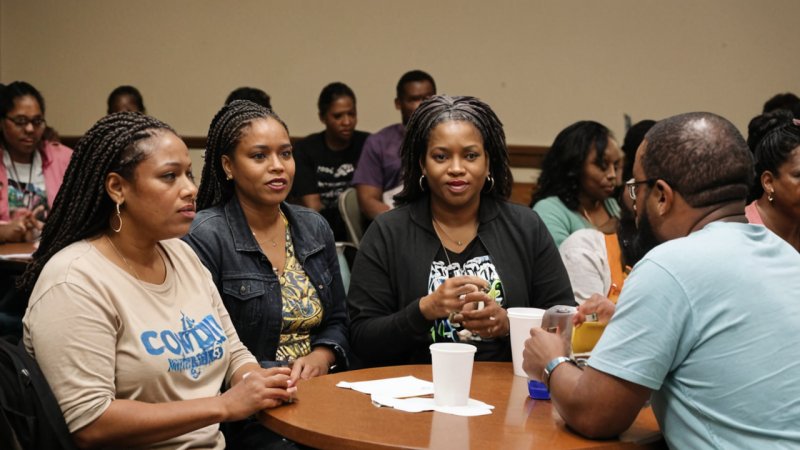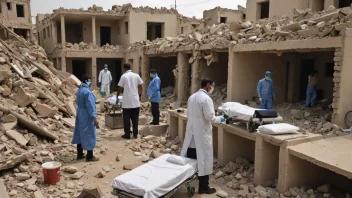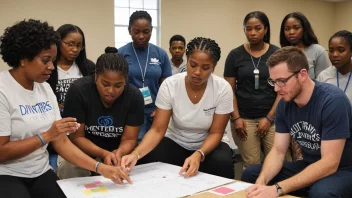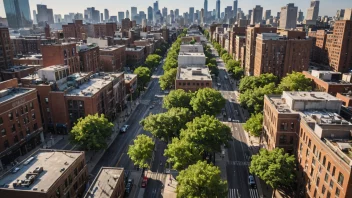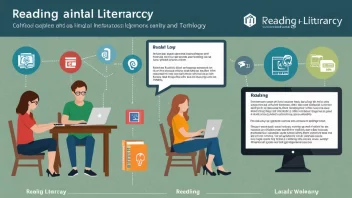The complex relationship between poverty and mental health is a pressing issue that affects millions globally. As we navigate the intricacies of human experience, the link between socioeconomic status and mental well-being becomes increasingly evident. Poverty not only restricts access to essential resources like food, shelter, and healthcare but also exacerbates mental health issues, creating a vicious cycle that is difficult to break. In this article, we will explore the multifaceted connection between poverty and mental health, the impact of this intersection on individuals and communities, and ways in which we can foster change and support those who are affected.
Understanding the Link
Poverty is often accompanied by a range of stressors that can lead to or worsen mental health conditions. Financial instability, social isolation, and limited access to healthcare can contribute to anxiety, depression, and other mental health disorders. According to the World Health Organization, individuals living in low-income settings are at a higher risk of developing mental health issues due to these compounded factors. Furthermore, mental health problems can hinder an individual’s ability to find employment, perpetuating the cycle of poverty.
Social Determinants of Mental Health
The social determinants of health, which include economic stability, education, social and community context, health care access, and neighborhood environment, play a crucial role in shaping mental health outcomes. For instance, individuals in impoverished neighborhoods may encounter violence, inadequate housing, and lack of access to quality education and employment opportunities. These adverse conditions can lead to increased levels of stress and trauma, which in turn affect mental health.
Impact on Families and Communities
The implications of poverty on mental health extend beyond the individual level; they ripple through families and communities. Children raised in poverty are particularly vulnerable, as adverse childhood experiences can lead to long-term psychological effects. Families facing financial hardships may struggle with communication, leading to conflict and breakdowns in relationships. This familial strain can further exacerbate mental health issues, creating a challenging environment for children and adults alike.
Community Resources and Support Systems
Communities play a vital role in addressing the intersection of poverty and mental health. Local organizations can provide essential resources, such as counseling services, job training programs, and support groups. These initiatives help individuals navigate their challenges and promote resilience. Moreover, community engagement fosters a sense of belonging, which can significantly improve mental health outcomes. By connecting individuals to resources and creating supportive environments, communities can uplift those affected by the dual burdens of poverty and mental health issues.
Barriers to Accessing Mental Health Care
Despite the critical need for mental health support in low-income populations, numerous barriers prevent individuals from accessing care. Stigma surrounding mental health, especially in marginalized communities, can deter individuals from seeking help. Additionally, financial constraints, lack of transportation, and limited availability of services further complicate access to mental health care. Addressing these barriers is essential for promoting mental health equity and ensuring that all individuals have the opportunity to receive the care they need.
Advocacy for Policy Change
Changes at the policy level are necessary to improve the intersection of poverty and mental health. Advocates can play a pivotal role in pushing for legislation that expands access to mental health services, increases funding for community programs, and addresses the root causes of poverty. By raising awareness and advocating for change, individuals can contribute to creating a more just society where mental health care is accessible to all, regardless of socioeconomic status.
How Individuals Can Get Involved
While systemic change is crucial, individual actions can also make a significant difference. Here are some ways to get involved:
- Volunteer: Offer your time to local organizations that provide mental health support or poverty alleviation services.
- Educate Yourself and Others: Learn about the issues at the intersection of poverty and mental health, and share this knowledge within your community.
- Advocate: Reach out to policymakers to express your support for initiatives that address mental health and poverty.
- Support Local Initiatives: Engage with community programs aimed at improving mental health and reducing poverty.
Conclusion
The intersection of poverty and mental health is a complex and urgent issue that requires our attention and action. By understanding the link between these two factors, we can work towards creating a society that prioritizes mental health equity and empowers individuals to break free from the cycle of poverty. Through community engagement, advocacy, and individual actions, we can foster an environment where everyone has access to the support they need to thrive. Together, we can make a difference in the lives of those affected by the dual challenges of poverty and mental health.
